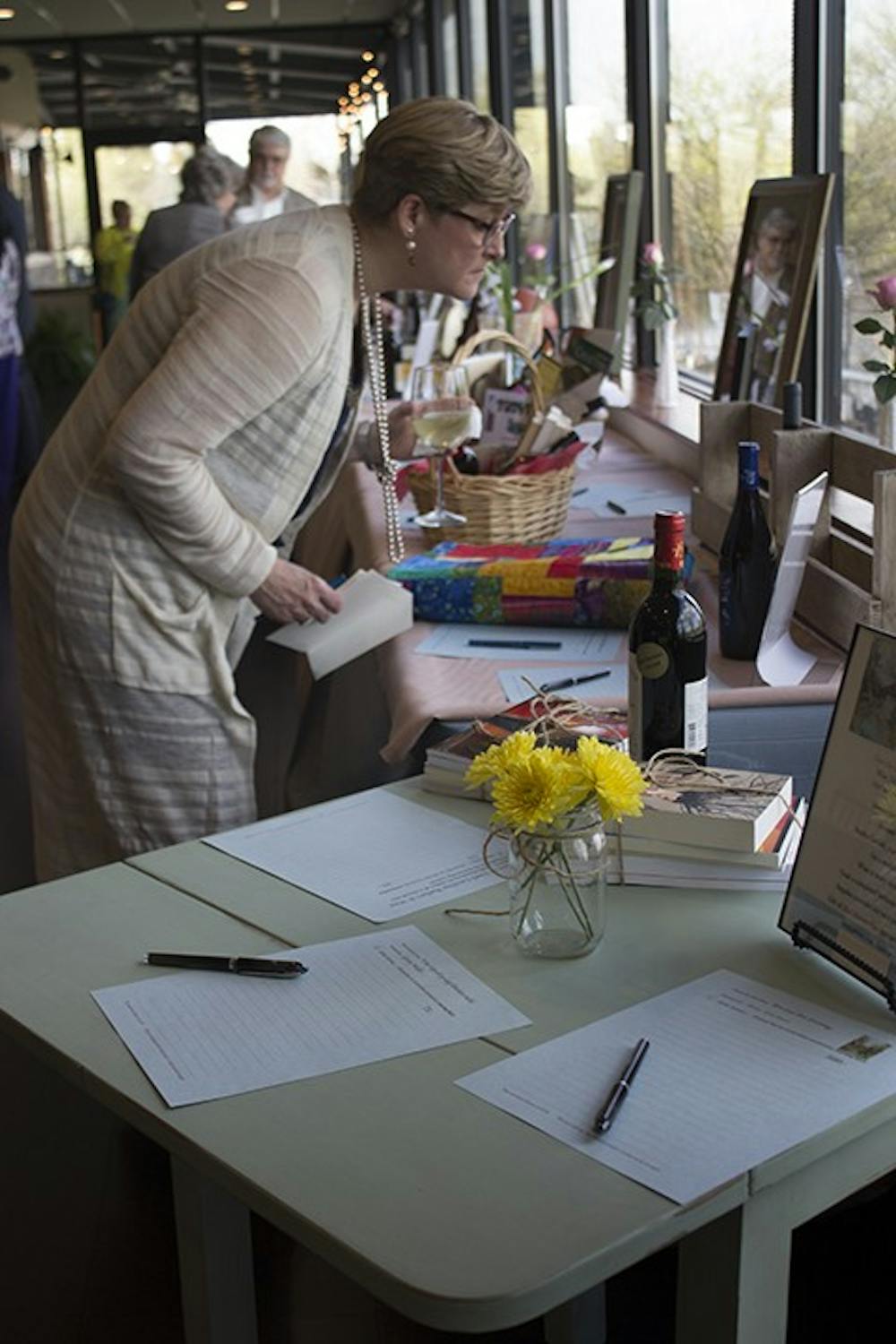For members of the Gamecock community, it is quite the month to be a social advocate here in Columbia. Not only is March Women’s History Month, but it is also the 40th anniversary for the Women’s and Gender Studies program at USC.
The program hosted a gala in celebration of the landmark anniversary on Tuesday at Stone River. There was a silent auction at the end of the night to raise money for the Women’s Well-Being Initiative (WWBI).
Established in 2001 by the WGST program, WWBI focuses on the importance of the mental and physical health and overall general well-being of South Carolina’s women and girls.
Harriet Hancock, Marjorie Hammock and Sarah Leverette were all honored as Social Justice Luminaries for their dedication to the WGST program and local organizations advocating for the equality of all individuals in South Carolina.
USC President Harris Pastides, the Women's and Gender Studies faculty and community members came together to remember what it was that brought the program together those 40 years ago.
An independent group of faculty members and graduate students first began campaigning in 1972 to President Tom Jones to establish courses that would focus specifically on women’s issues.
Thanks to this group, community members and alumni began making contributions toward the WGST program — at the time WOST for Women in Western Culture — and allowed a continuous growth of support from staff and students, despite much initial hesitance.
Pastides was a guest speaker at the Gala and spoke fondly of the effect that the WGST program has had on him since he has been at the university.
“The Women’s and Gender Studies program helps to remind me of where my moral compass is,” he said. “You all have taught me about social issues that I was unaware of before.”
Through his interactions with the program, Pastides has developed a better understanding of the spheres of social issues surrounding the program including the LGBTQ community.
“I had someone ask me the other day what the ‘Q’ in LGBTQ stands for, and I proudly answered ‘Questioning.’ And this is the time in our students' lives to be questioning everything,” he said.
Alexis Stratton, education and outreach coordinator at South Carolina Equality — South Carolina’s statewide nonprofit organization advocating for the LGBTQ community — and WGST professor at the university, recalls the impact that the program had on her personal and professional life.
“It changed the way I see the world and the way I saw my career path,” she said. “Had I not been involved in the WGST program, I would have lacked the background experience to work at SC Equality doing what I do.”
Biology and women’s and gender studies professor Ann Ramsdell was enthusiastic about the progressive impact that the WGST program has had on the university.
“My history in school was primarily biology related, but learning about the WGST program has definitely effected my teaching methods,” she said. “I teach very differently now than I did 15 years ago. I’m learning new things every day and it has allowed me to learn from different perspectives.”

